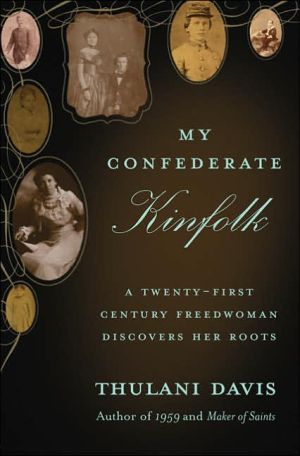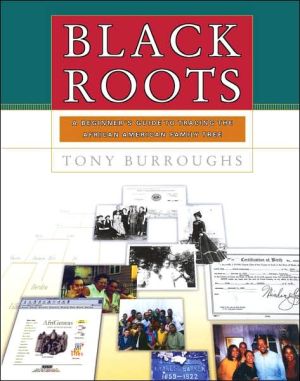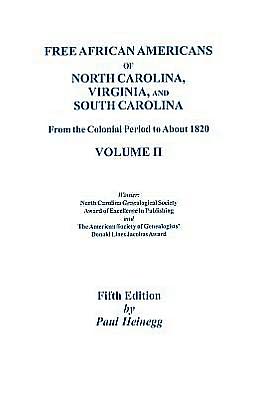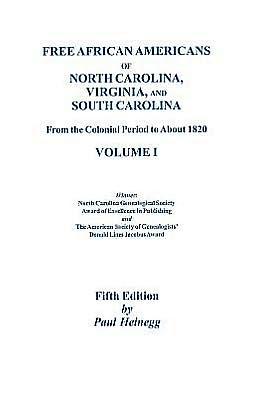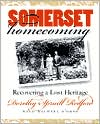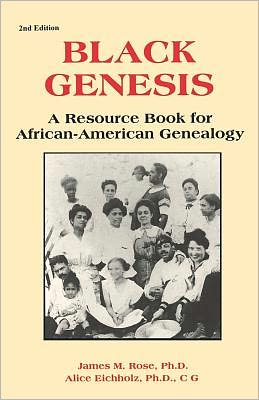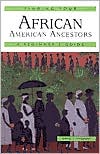My Confederate Kinfolk: A Twenty-First Century Freedwoman Discovers Her Roots
Starting from a photograph and writings left by her grandmother, acclaimed African-American novelist Thulani Davis goes looking for the “white folk” in her family, a Scots-Irish family of cotton planters unknown to her-and uncovers a history far richer and stranger than she had ever imagined. Her journey challenges us to examine the origins of some of our most deeply ingrained notions about what makes a family black or white, and offers an immensely compelling, intellectually challenging...
Search in google:
Beloved novelist and playwright Thulani Davis takes a journey through her ancestral history and finds tartan plaid, unlikely lovers, and Confederate soldiersPublishers WeeklySoon after former slave Chloe Curry began working as a cook in the Mississippi home of Will Campbell, a former slave-owner, she became pregnant with his child. "She stayed with Will Campbell the rest of his life. And he kept her in his home the rest of his life. With this fact in mind, I can only assume a genuine affection of some depth developed between these two people." In this family history, Chloe and Will's great-granddaughter tries to make sense of their relationship in the context of Reconstruction and its failures. Unfortunately, however, Chloe and Will's 19th-century story, with all of its insights into a larger American history, does not fully emerge until the middle of the book. Descriptions of the author's writer's block, her research difficulties and her anger about the neglect of African-American history bog down the early chapters. Yet Davis (Maker of Saints) succeeds in conveying the precarious position of blacks in the South after the Civil War and her final chapter on the great Mississippi flood of 1927, in which "the lives of blacks were harder hit than others," has eerie parallels with the post-hurricane flooding of New Orleans-just one example of how important it is to understand this period in our common past. (Jan) Copyright 2005 Reed Business Information.
1Twenty-first century freedwoman : fitting two families into history12Silver Creek, Mississippi, ca. 1875 : Chole Tarrant Curry comes to work at the Campbell Plantation153Clay pots and a tiger's tooth (1850-1861) : where Chloe came from434Horses at the door (1852-1861) : where Will came from695Behind Confederate lines (1861-1863) : the scattered Campbells go to war956War from on the road (1863-1865) : fighting emancipation, black soldiers, and personal loss1277"They still shoot Negroes" (1865-1868) : in Alabama and Mississippi after the war1598Silver Creek (1868-1878) : Chloe leaves terror in Alabama for Mississippi1959Colonel Campbell's constituents : the heroes and villains of a violent election22710High water (1880-1932) : Chloe and Will and life in Yazoo239
\ Publishers WeeklySoon after former slave Chloe Curry began working as a cook in the Mississippi home of Will Campbell, a former slave-owner, she became pregnant with his child. "She stayed with Will Campbell the rest of his life. And he kept her in his home the rest of his life. With this fact in mind, I can only assume a genuine affection of some depth developed between these two people." In this family history, Chloe and Will's great-granddaughter tries to make sense of their relationship in the context of Reconstruction and its failures. Unfortunately, however, Chloe and Will's 19th-century story, with all of its insights into a larger American history, does not fully emerge until the middle of the book. Descriptions of the author's writer's block, her research difficulties and her anger about the neglect of African-American history bog down the early chapters. Yet Davis (Maker of Saints) succeeds in conveying the precarious position of blacks in the South after the Civil War and her final chapter on the great Mississippi flood of 1927, in which "the lives of blacks were harder hit than others," has eerie parallels with the post-hurricane flooding of New Orleans-just one example of how important it is to understand this period in our common past. (Jan) Copyright 2005 Reed Business Information.\ \ \ \ \ Library JournalIn 1971, pursuing the story of her dying grandmother's black mother and white father who came together in post-Civil War Mississippi, the poet, playwright, novelist, and journalist Davis entered on a journey to her own identity. This book traces her travels along a family tree that branched into places she feared to look or never imagined. She discovered not only her black roots in muddy Mississippi's cotton slave hands but also in whites riding to war to save slavery. She discovered sometimes imperceptible lines between black and white, friend and foe, slaveholder and slave. She reached kinfolk in the Caribbean and in Africa itself, locating tribal Temne forebears in Sierra Leone. Retracing the steps of her people with anecdotal particulars, Davis details an epic that moves from African Middle Passage in the 1700s to the Civil Rights Movement of the 1950s and 1960s. Her very personal story opens poignant perspectives on an American past where identity was both more and less than black-and-white. Recommended for collections on autobiography and African American, Southern, and U.S. history.-Thomas J. Davis, Arizona State Univ., Tempe Copyright 2005 Reed Business Information.\ \ \ Kirkus ReviewsAn African-American turns to genealogy to plumb the lives and times of her white Southern forebears during the Civil War and Reconstruction. In presenting the results of exhaustive personal research into a racially mixed branch of her family tree, playwright and novelist Davis (Maker of Saints, 1996, etc.) emphasizes that her findings are hardly unique. Any African-American with kin "from the South or West way back when," she asserts, "is likely to have family ties-black and white-to the founders of the country [as well as] the American system of bondage." In telling the story of her search for ancestors that began with old letters, the writings of her grandmother and a strange photograph of a black child of the 19th century completely decked out in authentic tartan plaid, Davis also documents the condition of blacks making the transition from bondage to Emancipation as "freedmen and freedwomen." (Her use of the term and its application to herself intimate that the transition is ongoing.) The story centers on the encounter in the 1870s between her African-American great-grandmother, Chloe Curry, and Will Campbell, scion of an influential white cotton-planting clan with proud Scottish roots (refugees, in fact, from the horrors of guerilla-style terrorism in Civil War Missouri). The evolution of that relationship from household employment to lifelong companionship (they never married) takes place against the cataclysmic background of failed Reconstruction in Mississippi's Yazoo County. Burnings, shootings, lynchings and rapes were exacted against blacks who voted against the "redeeming" white supremacist ticket. The author reacts variously with shock, sarcasm and occasional vituperation asinjustices surface in her research, forcing her to embrace her African heritage with vigor. Polemics overlaid on personal history-reader affinity required.\ \
